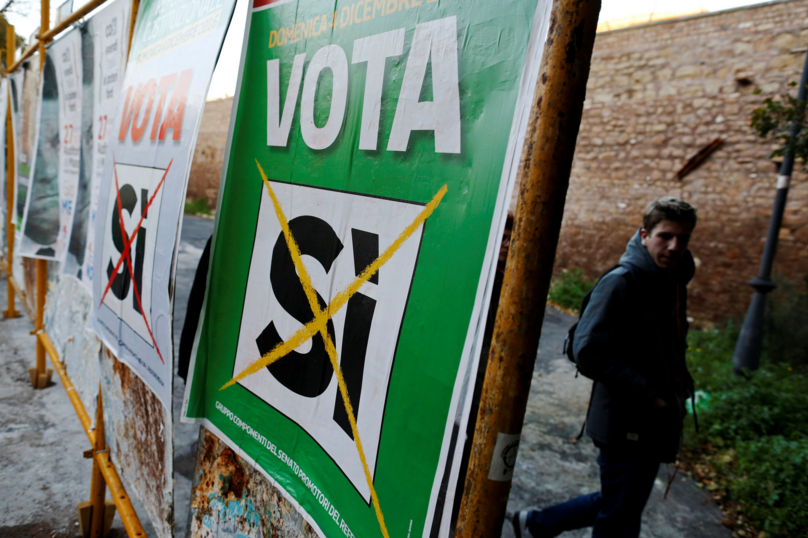The Italian Vote on the Establishment
2016 will be remembered as a year of the people against the establishment. First, with Brexit in Britain, then with Donald Trump in the United States, people have voted against conventional politics.
This Sunday, all roads will lead to Rome. More generally Italy, as the Italians will vote on a referendum of their own.
The referendum was proposed by Italian Prime Minister, Matteo Renzi, as a way to increase efficiency in the Italian Government. Renzi is viewed as the establishment in Italy. If passed, the referendum will reduce Italy’s Senate from 315 members to 100.
These 100 members would be appointed by Renzi and other bureaucrats, which would take power out of the hands of the people and give it to Renzi. With a hand-picked parliament, he could virtually pass any bill he chooses.
“[Sunday’s referendum] is a referendum to reduce bureaucracy in Italy,”Renzi said on an interview with 60 Minutes, “… [Italy has had] 63 government changes in 70 years.”
It is evident that the system is broken in Italy but some Italians don’t see the Italian Senate as the problem.
“[Renzi] doesn’t want to change the country, he just wants more power,” said Virginia Raggi in the same 60 Minutes segment. Raggi is a prominent member in the Five Star Movement and the mayor of Rome.The Five Star Movement was founded by celebrities and is anti-establishment.
Even Italians outside of the FIve Star Movement believe that Renzi is power-hungry. For example, Renzi’s priest once told him, “God exists, but you are not him.”
In addition, Renzi, who was fairly popular before the bill because of his charismatic attitude, said he would step down if the the bill was not passed. “This was my mistake in the first days of [campaigning],” he said on the issue.
Many Italians are taking this as an opportunity to vote away the establishment. By putting his Prime Ministry on the line, he may drive Italy to a “no” vote because many Italians want to end his term.
The “yes” voters believe Italy’s political issues are derived from inefficiency. The “no” voter see the problem in the power-hungry, establishment-endorsed Prime Minister.
The most recent polls indicated the vote will be 53.5 percent to 46.5 percent in favor of “no.” These polls were taken two weeks ago as Italy outlaws polling during the last two weeks leading up to a vote. The polls may very well not hold true as they did with Brexit and in our election.
If the polls are correct and Italy votes “no” Renzi will step down, and it is likely that Raggi’s party, the anti-establishment “Five Star Movement,” will gain power.
If Italy votes “no,” the next Prime Minister will probably be a member of the Five Star Movement making this just like Brexit and The United States Election a vote on the establishment.
In addition, the Five Star Movement is anti-European Union, so if Renzi steps down and the Five Stars gain power, Italy may leave the European Union within the next few years. Therefore, the result of Sunday’s vote may determine the future of the European Union.
Italy will probably vote “no” continuing 2016’s trend: the people against the establishment.







